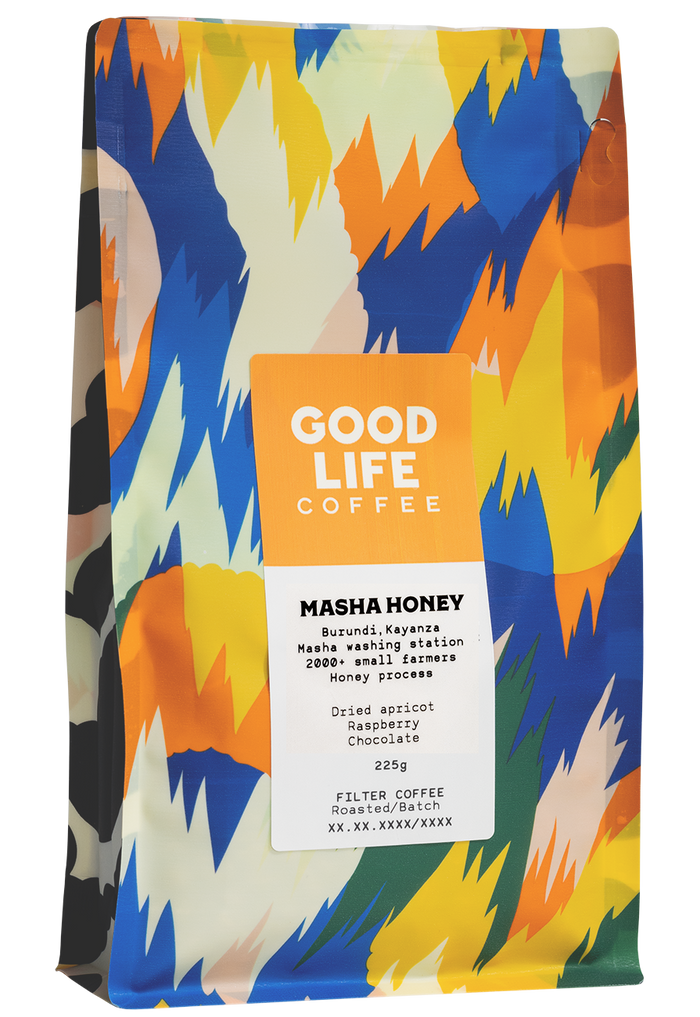Good Life Coffee
MASHA HONEY, BURUNDI - beans (225g)
MASHA HONEY, BURUNDI - beans (225g)
無法載入取貨服務供應情況
Country: Burundi
Field: Kayanza
Producer: +2000 small farmers
Processing: "Honey" processed
Varieties: Red Bourbon
Altitude: 1672m
Harvest: March- April2023
Masha Honey Coffee, which comes from the Masha washing station located in Kayanza, Burundi, is done through the “honey processing” (the style in which coffee is processed does not contain honey) and is a Red Bourbon variety coffee. It is an excellent choice for filter coffee when you want fullness and softness from your coffee. The processing leaves the coffee with an amazing mouthfeel and sweetness. You can find flavors such as apricot, chocolate and dark sugar when tasting the coffee.
The washing station in Masha was built in an area known more for its cattle than for its coffee already in 1989. However, the farmers of the area decided not to rely only on one, but also cultivate different crops, such as coffee, in order to get the necessary income to live. The background of this coffee consists from more than 2,000 small farmers in the area, who all bring their farm's coffee berries to Masha's washing station for processing. On average, small farmers have only about 250 coffee trees, and when each of these produces about 1.5 kg of coffee berries per year, the annual production of each farmer is about 375 kg.
Since the farmers themselves are not necessarily professionals in coffee cultivation, the washing stations operating in the area have a great influence on the quality of the coffee. They share information with the farmers, and do precise work when the coffee berries arrive at the station for processing. The coffee is inspected and sorted to improve quality, first by floatation, which separates the low-quality berries. From the remaining berries, all visibly defective ones are removed, after which the coffee is de-pulped (the coffee berry is removed from around the coffee seed/bean). In honey processing, the coffee is not washed at this stage, but is transferred directly to dry with the "honey" layer on top of the coffee bean, which is washed away in "washed" processing. The coffee dries for about 2-3 weeks, during which any damaged beans are manually separated from the coffee.


